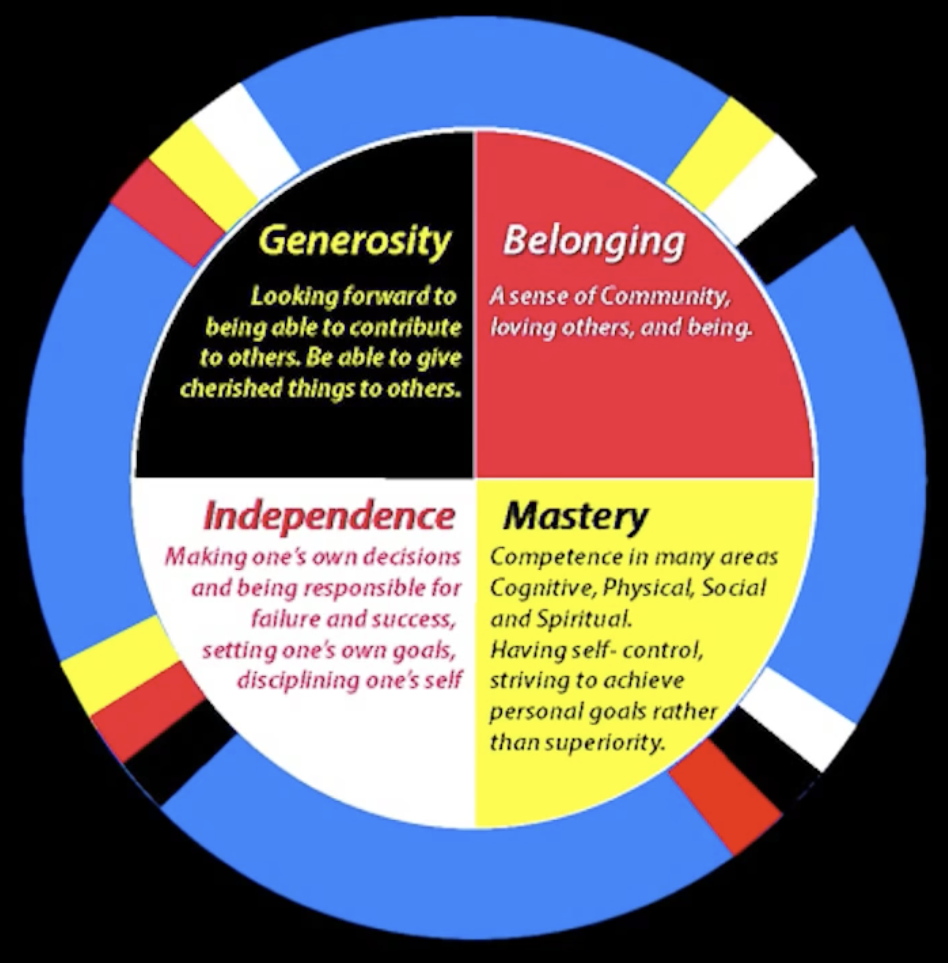Program this week
This week's program was brought to us by our club's Indigenous Awareness Committee, and was in two parts: a short movie followed by a moving personal story. (And thanks to so many Rotarians for wearing ORANGE for Orange Shirt Day!)
Movie: First Peoples Principles of Learning
 Watch it here ... well worth 9 minutes of your time! Retired professor Dr. Martin Brokenleg explains how Indigenous learning is historically focused on Empowerment and filling a person's Heart, not Control and filling a person's Mind.
Watch it here ... well worth 9 minutes of your time! Retired professor Dr. Martin Brokenleg explains how Indigenous learning is historically focused on Empowerment and filling a person's Heart, not Control and filling a person's Mind.
Rick Le Feuvre shared this excellent short movie, setting the scene for the presentation that followed, introduced by Dianne Dance.
 Speaker: Nicole Van Stone-Mascherin
Speaker: Nicole Van Stone-MascherinWhy I can't "Just get over it"
Our guest speaker, a fellow Rotarian (current president of the BEL Rotary Club near Peterborough) and successful realtor from The Kawartha Lakes region, bravely and quietly shared her family's personal experience with the "generational trauma" caused by Canada's residential schools.
When Nicole's Mom was 4 years old, she was "collected" from the Attawapiskat area and taken to St. Anne's residential school in the St. James Bay area. She was finally returned to her family when she reached 16 years of age, having endured years of deprivation and abuse, only to discover how damaged her family relationships were and that she didn't feel worthy or that she belonged anywhere any more. Furthermore, she suffered from the effects of TB contracted while at the school.
Such forced family separations devastated the parents and grandparents left behind who had zero legal recourse to get their children back. It traumatized the children themselves. Upon returning home, residential school "graduates" found themselves estranged from their families by lack of shared language, culture and relationships. Many school survivors lacked education, lacked confidence and lacked coping skills, and their trauma carried over to their own children and grandchildren. Survivors largely kept their personal experiences bottled up until Canada's Truth & Reconciliation Commission (2009-2015) enabled some survivors to finally start speaking out. Their stories were devastating. And many Canadians began to learn for the first time about our country's shocking history of residential schools.
Nicole's mom married a Métis man and they lived in the Toronto area but her Mom's lack of positive role models in parenting and partnering eventually led to their divorce, with Nicole and her two siblings observing huge differences between Mom's home and Dad's home. Eventually, Mom found peace and belonging through her church, stepped away from alcohol, and became a Giver, going on to bring comfort to fellow residential school survivors at the Indigenous Friendship Centre in Toronto.
Nicole's matter-of-fact sharing of this painful family background gave us pause for thought and reflection, and accomplished Nicole's simple goal of bringing greater understanding to the meaning of "generational trauma" related to Canada's residential school system. It is why she and others like her cannot "Just get over it." Nicole is a survivor, too, and still dealing with it.
Canada's last residential school closed in 1996.
Liz Sandals sincerely thanked Nicole for sharing with us.
Canada's residential school system (1894-1996) was created for the purpose of removing Indigenous children from the influence of their own culture and assimilating them into the dominant Canadian culture, "to kill the Indian in the child." Over the course of the system's more than hundred-year existence, about 30 percent of Indigenous children (around 150,000) were placed in residential schools nationally. The number of school-related deaths remains unknown due to an incomplete historical record, though estimates range from 3,200 to upwards of 6,000.